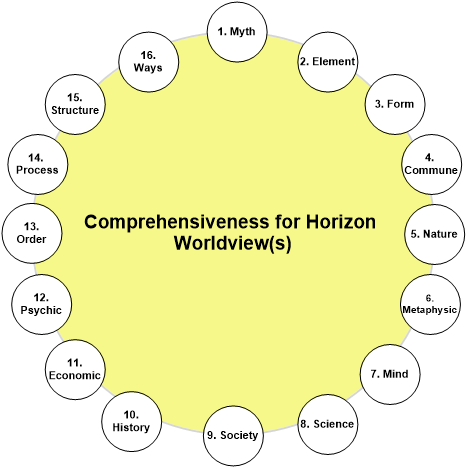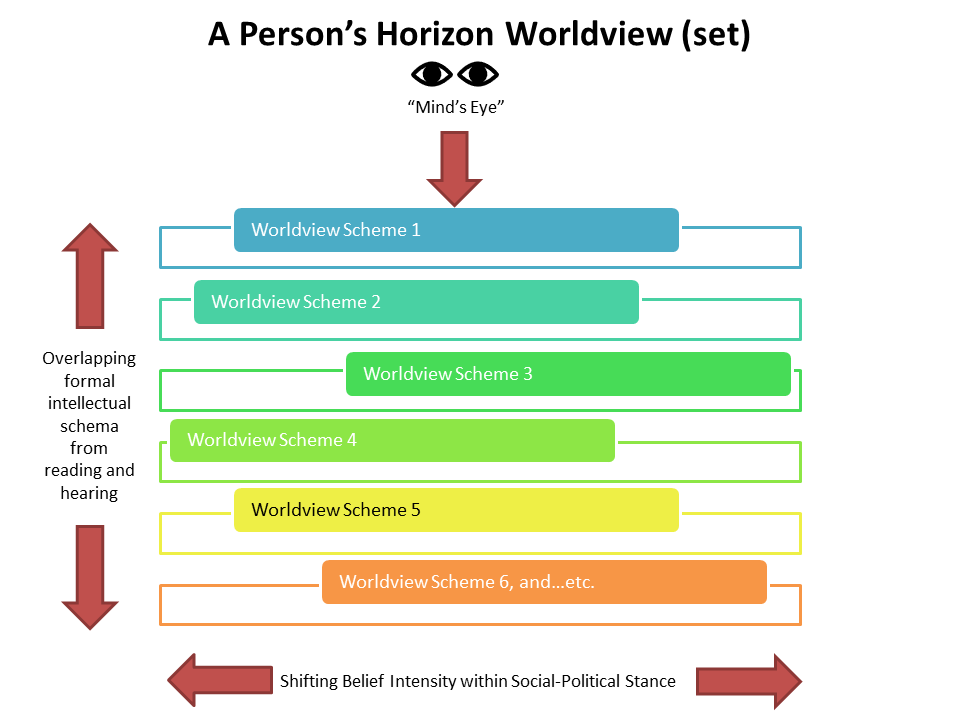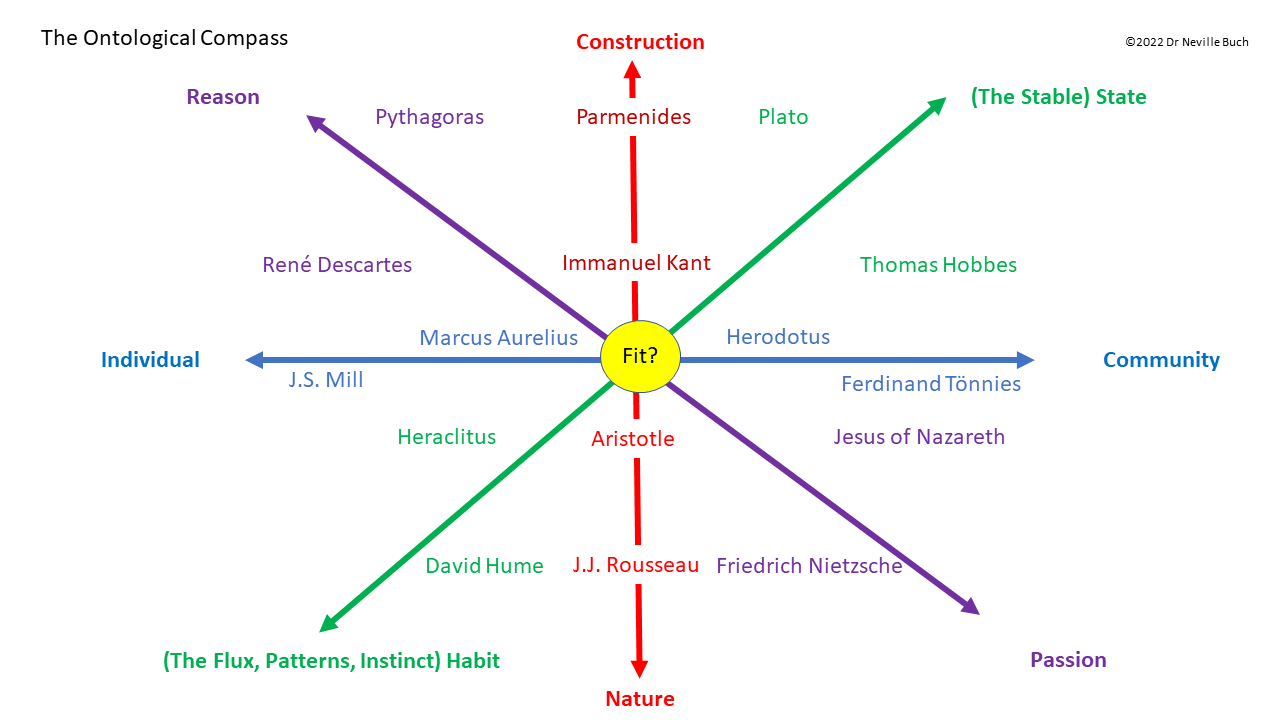In a conversation with one of the members in the international Philosophy of Science, Technology, and Mathematics Facebook Group, it came to me how I can explain my historiography. The context here is community education and research, but the university academics have missed much in the significance of my work for their own historical conclusions. The challenge from academic bubble thinking.
SO, PLEASE, ACADEMICS OF ALL STRIPES, READ. DO NOT DO THE USUAL BEHAVIOUR OF DISMISSING CHALLENGES OUT OF HAND.

Image: Comprehensiveness For Horizon Worldview (Bubble Thinking?) ©Dr Neville Buch ABN 86703686642
My concerns are scoped to persons’ thinking and how it (or does not) fit the many worldview systems, which offer modules in the cognition system (challenge of Gottfried Wilhelm Leibniz’s monads?). I am speaking consciousness here, and not dualistically as the brain science, i.e., abstractly ‘the content’ (beliefs) of the consciousness (self, person) in the midst of the physics and chemistry.
I am not troubled by any alleged explanation gap. My challenge is that we have constructed systems of explanation (and of descriptions), and the monist alleged an unknown singularity, making everything fit under the sum of all sums.
We have to ask why is the monist correct and the pluralist is not? However, for many years I wondered if that binary was also part of the alleged language problem, untangled by Ludwig Wittgenstein, and whether the sum of all sums is part of the mega-sum – to cite Bertrand Russell’s challenge.
It seems to be that the monism is personalism, that is, a person’s total conception of themselves in the world. Against the monism, is the pluralism of “The Other”, as in the challenge of Emmanuel Levinas. Coming as this process of thought, I saw the working conclusion of a fallibilistic and compatibilist model.
Image: The Ontological Compass. ©Dr Neville Buch ABN 86703686642
This is my historiography for the philosophy and history of science (and STREAM), social and public history, political and policy history, educationalist history, and intellectual history. The key question in the historiography is the idea of ‘fit’. How does 1) a person fit, historically, all of their owned beliefs in the personalism, which is the sum of their own worldview; and how does 2) a society fit, historically, all of the owned beliefs in the collected or socialised personalism, which is the sum of their own worldview; and 3) how does the triad work in the mapped resolutions between the historical personalism and the sociology (models). That is the challenge laid out centuries ago by the philosopher Georg Wilhelm Friedrich Hegel, and it is also the challenge mapped by American sociologist Randall Collins’ The Sociology of Philosophies: A Global Theory of Intellectual Change (1998).

Image: Mind’s Eye Of A Personal Horizon Worldview. ©Dr Neville Buch ABN 86703686642
In 2019 Collins’ produced another similar work, The Credential Society : An Historical Sociology of Education and Stratification.
The Credential Society is a classic on the role of higher education in American society and an essential text for understanding the reproduction of inequality. Controversial at the time, Randall Collins’s claim that the expansion of American education has not increased social mobility, but rather created a cycle of credential inflation, has proven remarkably prescient.
Collins shows how credential inflation stymies mass education’s promises of upward mobility. An unacknowledged spiral of the rising production of credentials and job requirements was brought about by the expansion of high school and then undergraduate education, with consequences including grade inflation, rising educational costs, and misleading job promises dangled by for-profit schools. Collins examines medicine, law, and engineering to show the ways in which credentialing closed these high-status professions to new arrivals. In an era marked by the devaluation of high school diplomas, outcry about the value of expensive undergraduate degrees, and the proliferation of new professional degrees like the MBA, The Credential Society has more than stood the test of time. In a new preface, Collins discusses recent developments, debunks claims that credentialization is driven by technological change, and points to alternative pathways for the future of education.
Not only is this the story of my life, but it is my challenge to academia in the struggle to create the alternative pathway for the future of education in community education and research. For academic managers, J’Accuse…! No, you have the agency to change the landscape.
Image: mind tangents series, dreamstime_m_63646139
Neville Buch
Latest posts by Neville Buch (see all)
- J. D. Vance’s Insult to America is to Propagandize American Modernism - July 26, 2024
- Why both the two majority Australian political parties get it wrong, and why Australia is following the United States into ‘Higher Education’ idiocy - July 23, 2024
- Populist Nationalism Will Not Deliver; We have been Here Before, many times… - July 20, 2024


